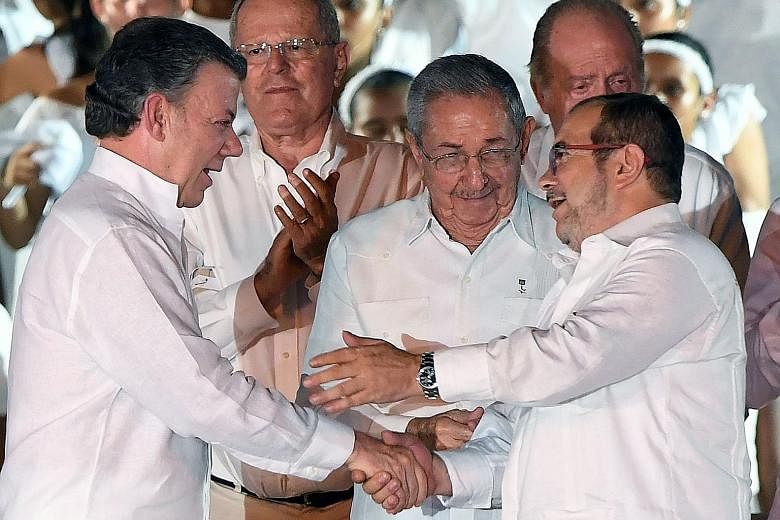CARTAGENA (Colombia) • Colombian President Juan Manuel Santos and Revolutionary Armed Forces of Colombia (Farc) guerilla leader Timoleon "Timochenko" Jimenez come from different worlds: one a rich businessman and politician; the other a country boy-turned-communist guerilla.
Mr Santos, 65, led a major offensive against Farc as defence minister from 2006 to 2009. After becoming President in 2010, he changed tack and negotiated for a settlement with the guerillas.
"He made war as a means to achieve peace," said his brother-in-law and adviser Mauricio Rodriguez. "He weakened the Farc to make them sit at the negotiating table."
Despite fierce opposition from some former allies, Mr Santos staked his presidency on the peace process. He won re-election in 2014 in a vote seen as a referendum on the talks.
"I am not looking for applause. I just want to do the right thing," he said.
The scion of a wealthy, powerful family entrenched in politics and the media, he was educated at the London School of Economics and began his career as a journalist.
The bearded, bespectacled Farc leader's real name is Rodrigo Londono, 57, but he is better known by his nom de guerre Timoleon Jimenez and Timochenko. He was born to a Christian mother and a communist father in a coffee-growing region where he said he soon became aware of social injustice. "At school, I wondered why there were some classmates who went without breakfast while others lived wastefully," he said.
He has said the first book he read was the Bible but he also read Karl Marx's The Communist Manifesto by the age of 12. State intelligence services say he received military and medical training in the Soviet Union and Cuba, which he denies.
He took over as Farc leader in 2011, and the following year wrote to Mr Santos proposing fresh peace negotiations.
Asked recently what he has learnt as a guerilla, he said: "There shouldn't be wars."
AGENCE FRANCE-PRESSE

